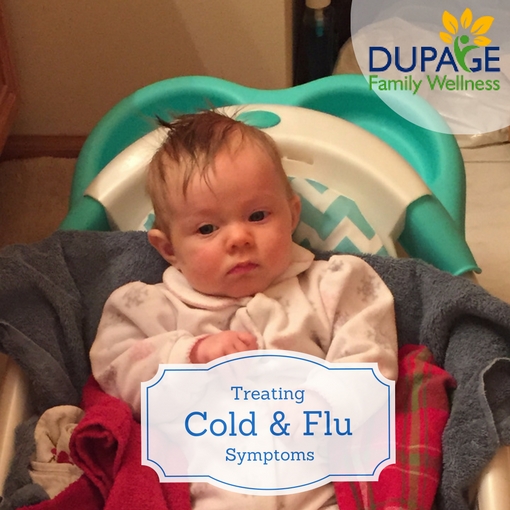
“My temperature is 101! Where is my ibuprofen?”
Is this your first reaction to a fever? It might not be the best action to take.
Why Taking Medicine to Reduce a Fever Might Not Be the Best Approach
A fever is the body’s natural reaction to fight off an infection, like a cold or the flu. A fever is a symptom of an illness, but not an illness itself.
Many illness-causing germs thrive at or below the body's normal temperature. Two purposes of a fever are:
- A fever increases the body’s temperature beyond the limit that invading microbes need to reproduce.
- A fever kicks your immune system into high gear, increasing the number of white blood cells which help fight the actual illness.
For most adults, 102-103 degrees is the ideal temperature for the body to kill off these microbes. (source) Research shows that letting a fever run its course may reduce the length and severity of illnesses such as colds and flu.
Furthermore, conventional methods of reducing a fever can do more harm than good. Tylenol (acetaminophen), Advil and Motrin (ibuprofin) all have side effects (read a long list on the package) that includes liver damage in adults and children, especially when taken frequently. Medications are foreign substances, which the body has to metabolize and filter. This requires energy that the body could be using to fight the actual illness that led to the fever in the first place.
What About Other Cold and Flu Symptoms?
There are many ways that our bodies fight off illness caused by viruses and bacteria. Coughing, sneezing, nasal mucous, vomiting, and diarrhea are ways that your body gets rid of pathogens. Taking medications to suppress these symptoms can slow down our bodies natural processes healing itself.
While your body is great at healing itself, it works best in ideal conditions. This means with proper sleep, good nutrition, and decreased stress. Getting good sleep, eating well, and keeping your stress down makes it easier for your body to fight off infections, and if some germs get in, your body can use it's energy to fight of the invaders.
If you do get a cold or the flu, follow these links for natural remedies and these tips to boost your immune system to avoid these conditions in the first place!
When Is Medical Intervention Warranted?
There are times when fevers can become too high and medical intervention is warranted.
| Age | Fever | Action to Take |
| Infants less than 1-month-old | >100.4 | Seek care immediately. While waiting for care, breastfeed as often as the baby desires to get anti-bodies from the breast milk. |
| Infants from 1-month to 3-months-old | >100.4 | Seek car if the child appears ill. Breastfeed on demand. |
| 3 months to 36 months | >102.2 | Seek care if the child appears ill. |
| Anyone | >104.5 | Seek Care |
If your fever is lower than the amounts in the table above, bed rest and fluids will allow the fever to do its job to get rid of your infection.
It is important to stay hydrated. If you or your child become dehydrated from excessive vomiting and/or diarrhea, medical attention could be needed.
The Bottom Line
Your body is an amazing, self-healing machine. If you get a cold or flu, don't get in the way of your bodies natural mechanisms to heal itself. Rather rest and stay hydrated, and give your body a chance to heal itself.
Dr. Jared Thomure and Dr. Jamie Thomure

